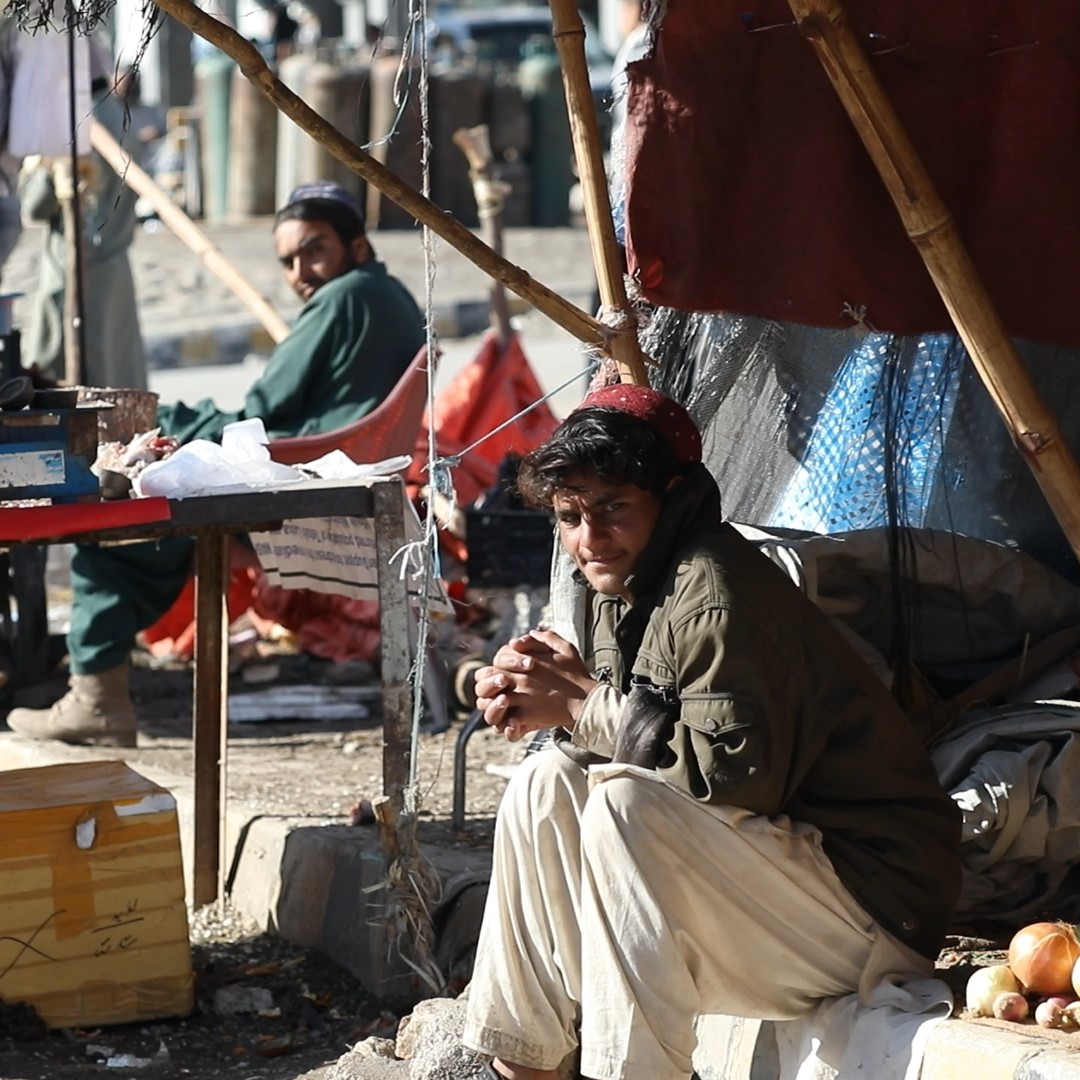The district of South Waziristan, comprising forty per cent of the merged tribal districts of Khyber Pakhtunkhwa, is about to complete one year of division into two districts with the aim of better administration. However, despite strong demands from local political leadership to establish district offices in the region, no concrete steps have been taken in this direction, resulting in various hardships for the local residents.
In October last year, the districts comprising the Mahsud population were combined, resulting in the establishment of the Upper South Waziristan, while the majority of districts of the Ahmedzai Wazir tribes were assigned the name Lower South Waziristan.
This decision will likely benefit the Wana Subdivision and its four tehsils – Wana, Shakai, Tolkhelah, and Bermal, now part of the Lower South Waziristan district. This is because Wana had previously served as a district headquarters. As a result, some administrative infrastructure was in place, as both the district offices of South Waziristan’s administrative authority were simultaneously located in Wana and the adjoining Tank district.
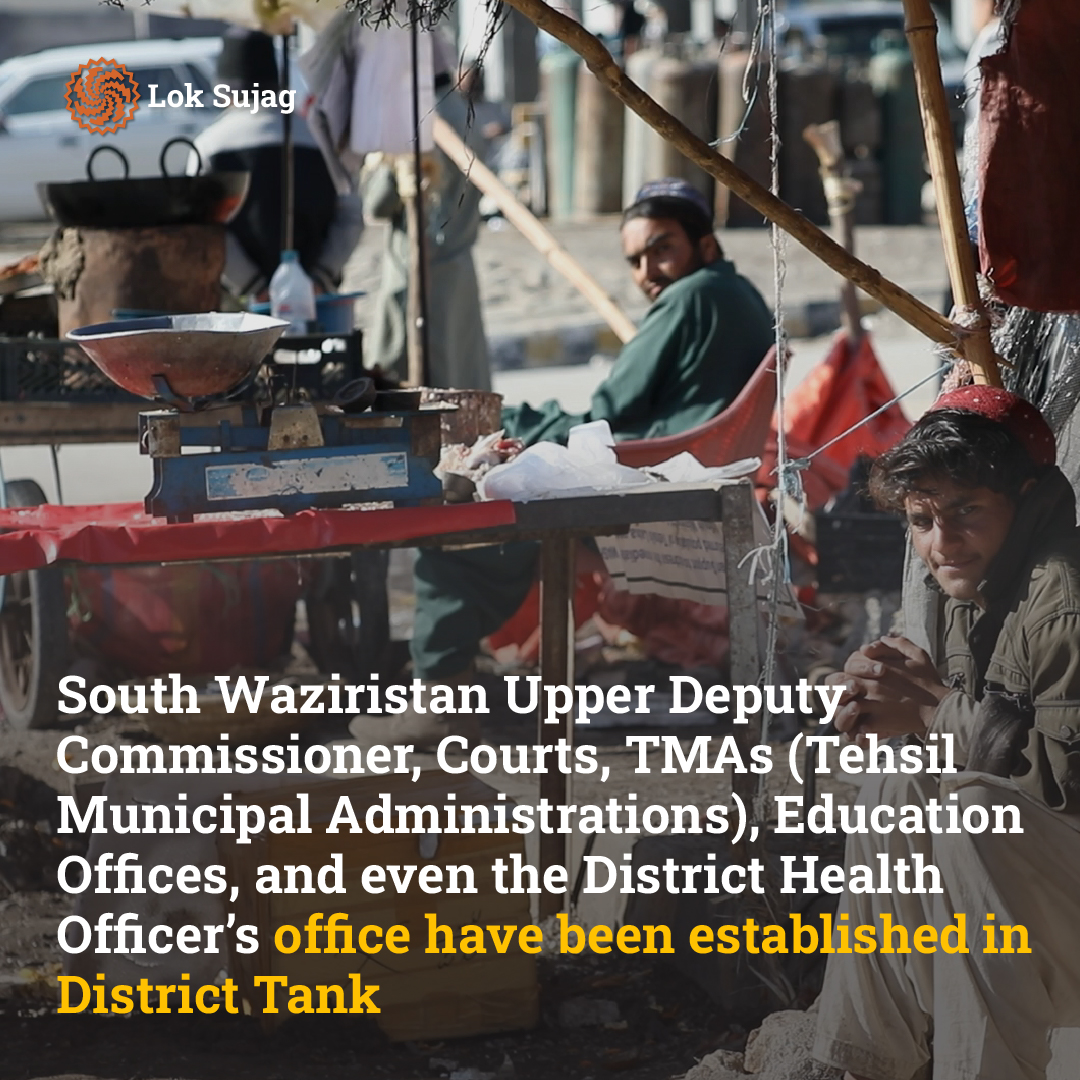
However, the Mahsud areas had not seen any significant administrative activity in the past. Even after obtaining the status of a separate district within South Waziristan Upper (comprising areas such as Tyarza, Sarwekai, Shawal, Ladha, Makin, Shaktoi, and Sararogha), there has been no noticeable improvement or presence of administrative machinery here.
In Wana, the headquarters of Lower South Waziristan, because there was already a significant degree of government infrastructure in place, after the formation of the new district, the Deputy Commissioner is now working in Wana, and other offices have also started functioning.
In contrast, there have been delays in determining the location of the headquarters in South Waziristan Upper, leading to concerns from local figures who continue to doubt the government’s sincerity in promoting development in the Mahsud region.
The current situation is that the South Waziristan Upper Deputy Commissioner is situated in Tank, approximately a hundred kilometres from the Mahsudabad area. Similarly, courts have been established in the Tank district, including the TMAs (Tehsil Municipal Administrations), the Education Office, and even the District Health Officer’s office has been set up in Tank.
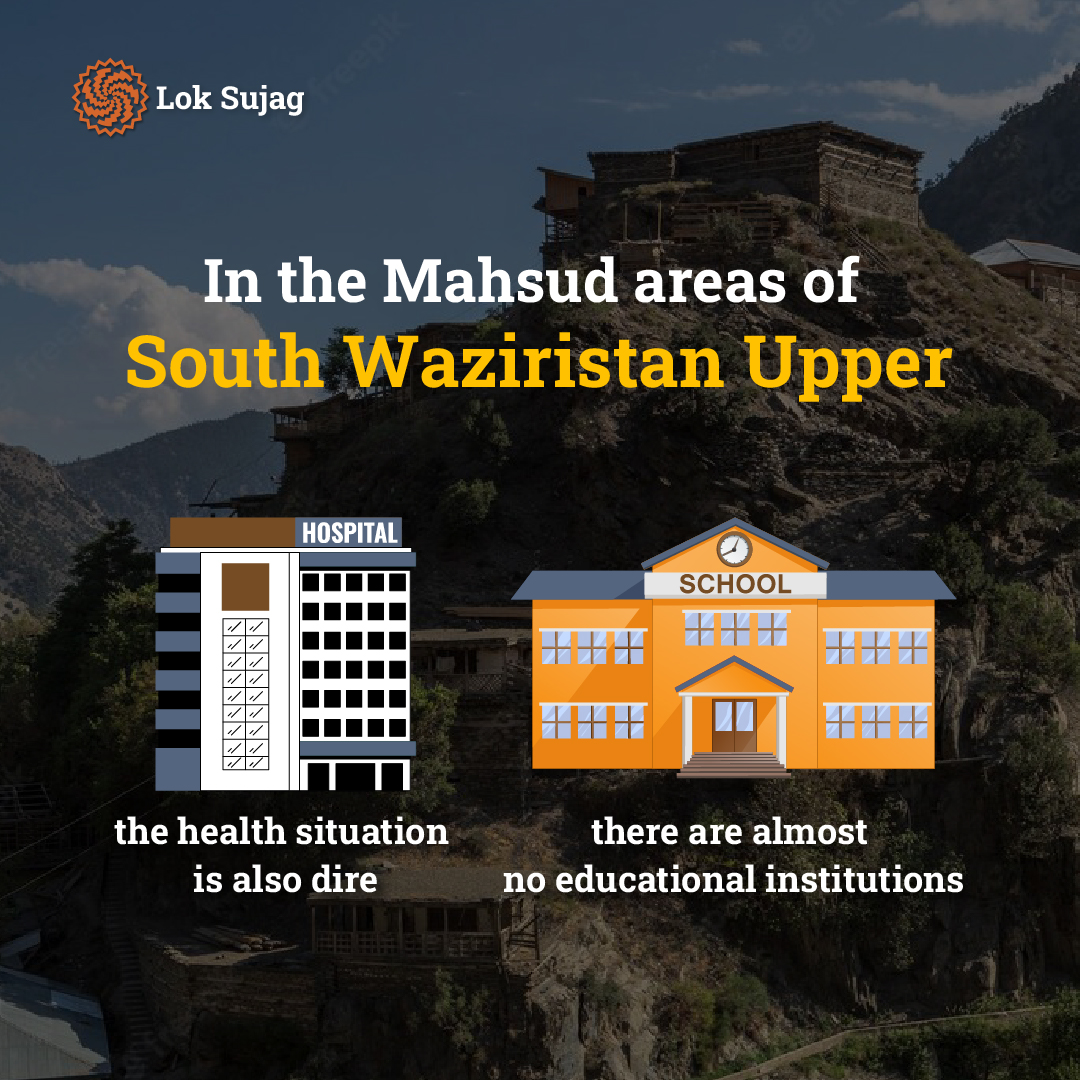
In the Mahsud region, there is a lack of educational institutions, and the healthcare conditions are deplorable. Almost one per cent of the population cannot access a general medical practitioner.
Arriving at the office of the Deputy Commissioner in Tank from his village, Smail Bobar, District Health Officer of Upper, expressed his disappointment, stating that it takes him several hours to travel from his village, Smail Bobar, to Tank.
“We lack basic facilities for our livelihood here. Poor people can only afford government healthcare, and many people, including myself, have to travel a long distance to come here. Now that we have somehow managed to reach here, the District Health Officer is not present,” he said.
Amjad Mahsud said that whenever they inquire from any department, the response they receive is that there is a security issue. However, they know there is no security issue concerning the Health Department, yet the District Health Officer’s office has been established in another district.
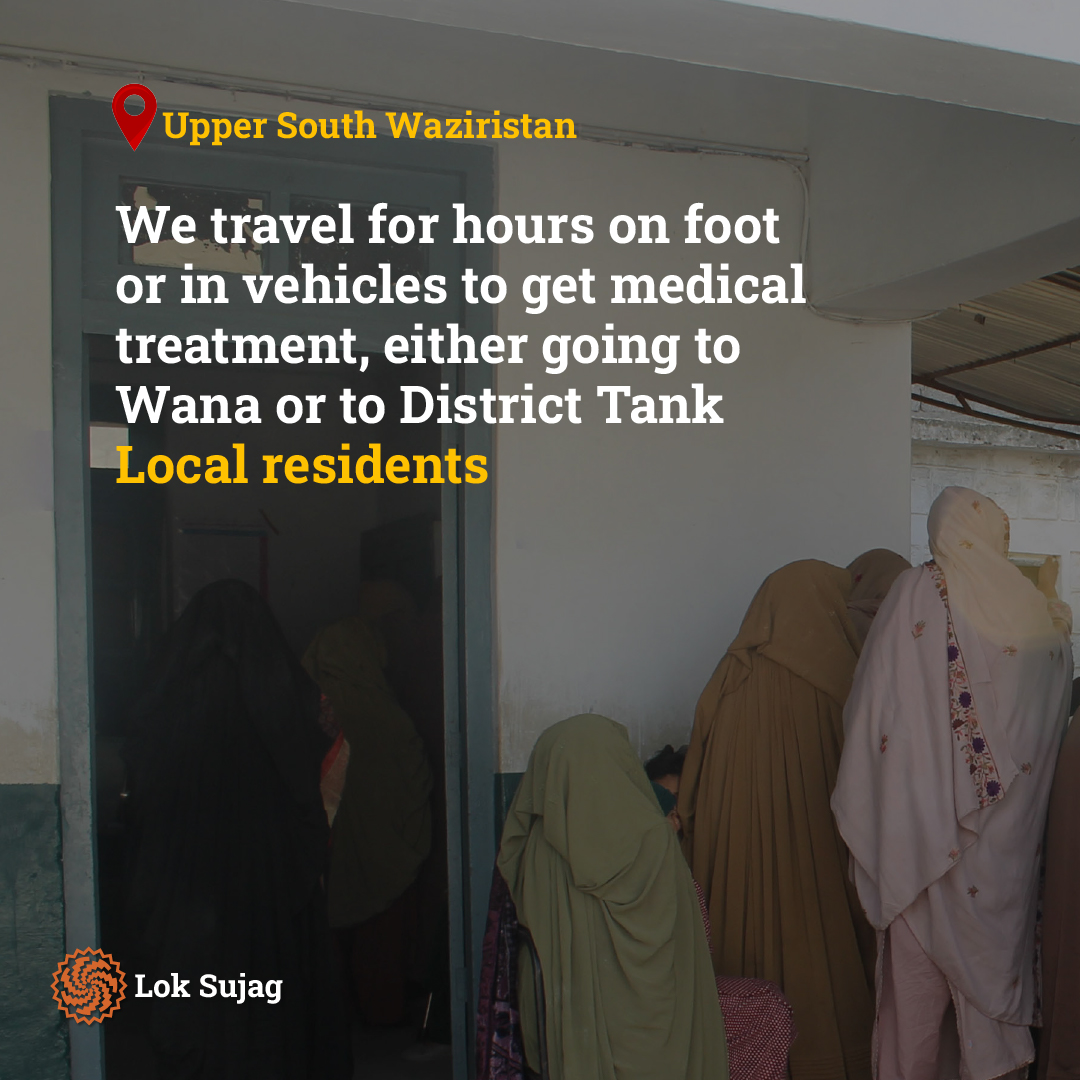
Sayed Alam Mahsud, who comes to Tank from Zangara, also stated that even a small health centre is not functioning in such a large area. If there are any government documents related to this, neither do they know about it, nor do other people in the area. He says that nobody is aware of their difficulties.
Ghulam Khan, who hails from Shuwāl, remembers that two years ago, in their village, Tora Algad Shuwāl, two children lost their lives due to the explosion of landmines. If they had received first aid, they could have been saved.
“While tending to the wounds of those children on the way, so much blood flowed from their injuries that they couldn’t survive. We are from the extremely remote areas of Waziristan, but even in bigger areas and cities like Makkīn, government health facilities are not fully operational.”
Also read
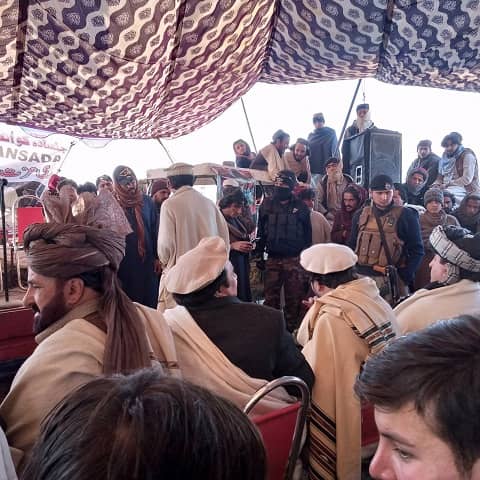
The Myth of Peace: In North Waziristan, community wants peace not compensation for civilian deaths
Sawal Uddin, who comes from the Badar area, revealed that in their area, there is only one dispensary, and it is opened only when there is a photo session.
“We have to travel for hours, either by walking, enduring bumpy rides in vehicles, or we go to Wana for treatment or sometimes to the district of Tank.”
Assistant Commissioner South Waziristan, Umar Khattab, explained that offices had been established in the Subdivision South Waziristan, which were not fully operational due to a lack of equipment. However, this work will be completed soon, and significant progress will be made towards addressing the fundamental demands of the Mahsud tribe. The same approach will be adopted for the Ladha Subdivision in the next phase.
Regarding establishing the District Health Office (DHO) office in South Waziristan, they stated that there is currently no consensus on the location of the headquarters in the region. Any decision can have negative consequences until a consensus is reached through mutual consultation.
Malik Saeed Anwar Mahsud alleges that the fundamental issue is the lack of sincerity at the government level. If this were not the case, the headquarters would have been established in the Mahsud region by now. To alleviate public issues, relocating all offices of various departments to the region and the DHO office is necessary. However, there is no apparent interest at the government level in this important matter, which is regrettable.
Published on 19 Sep 2023
